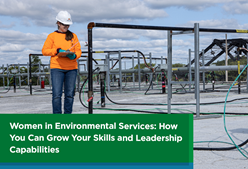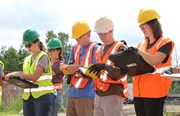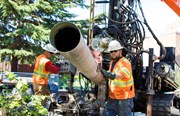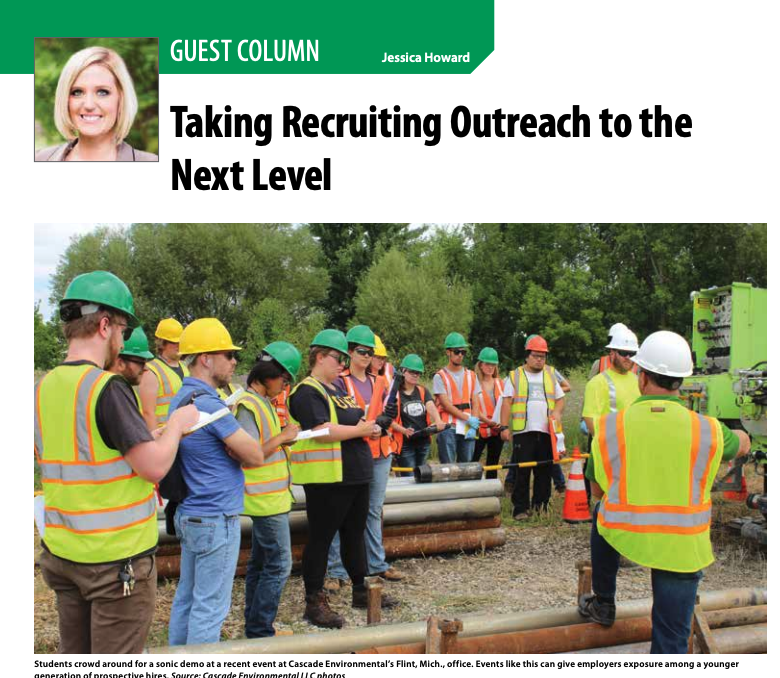How to Stand Out Amongst Jobseekers in the Post-COVID Hiring Environment
By: Jessica AlexanderThe COVID-19 pandemic has had a tremendous impact on hiring and employment in the US, and the environmental services industry has not been immune to the repercussions of this. As unemployment skyrockets, more skilled trade professionals are flocking to job boards to search for new opportunities. In a frustrating twist, hiring has essentially ground to a halt for a vast majority of those organizations, too.
If this hits close to home, you’re probably asking yourself, “What can I do to stand out from other job seekers and get noticed by those making the hiring decisions?”
In this blog post, we’ll cover the two things you must do: create a resume that makes your skills and experiences shine, and then go the extra mile and connect with decision makers.
CREATE AN EYE-CATCHING RESUME
Before you do anything else, you’ll want to take a look at your resume and be sure you’re following some simple guidelines. Most hiring managers are aware that skilled trade professionals are not professional resume writers, but in a high unemployment environment, a well written resume can be very effective for securing a job interview.
KEEP FORMATTING SIMPLE AND CONCISE
As a jobseeker, you can find many skilled trade resume templates online by doing a simple internet search. However, be mindful about how much content you’re putting on your resume. Managers are sifting through a much larger number of applicants today than they were six months ago, so you’ll want to create a resume that is easy to skim for important details. Avoid long, wordy sentences and use bullet point statements instead. Remember to also use keywords for specific skills and abilities that the job demands. A short objective statement that is direct and to the point is also recommended. No matter how much industry experience you have, it’s best to keep your resume to two pages or less.
TAILOR YOUR RESUME TO THE JOB DESCRIPTION
Tailoring your resume to keywords in the job description is incredibly important. This is because some applicant processing systems will automatically filter out your resume if it doesn’t contain certain phrases! Be sure to thoroughly review the job description and make some edits to your resume to align keywords and elaborate on any experience you have that is required in the job description.
HIGHLIGHT TRANSFERABLE SKILLS
Many jobseekers make the mistake of believing they’re not qualified for a position because they don’t possess the exact skillset referenced in the job description. What applicants often overlook is that many skills are transferable, but as a jobseeker it’s your responsibility to show how the skills you gained in one job can benefit a new prospective employer.
For more information about how to highlight transferable skills on your resume, check out this article from Indeed.
FOCUS ON ACHIEVEMENT
Focus your resume on achievement. What was the end result of your efforts in previous roles? In a resume, it’s important to not just say what you did, but also describe what the impact was for the organization. Be specific, as much as possible, and try to paint a concise picture of your responsibilities and achievements in each position you’ve held.
INCLUDE CERTIFICATIONS AND TRAINING
Education should be the final section of your skilled trade resume. Don’t forget to include any relevant certifications or training you’ve received (along with the dates they were earned or completed). If you hold any specific licenses, those should also be included.
CONNECT WITH DECISION MAKERS
Making personal connections with decision makers and hiring managers is just as important as having a well-crafted resume. These connections can be made in many different ways:
- Adding the hiring manager or recruiter to professional networks, such as LinkedIn
- Leaving thoughtful comments on the company’s online content
- Calling local offices to inquire about hiring needs and application status
- Calling recruiters to inquire about next steps and the interview process
- Sending a follow-up email to hiring managers or recruiters re-confirming your interest in the position
- Drafting a personalized cover letter with your application, highlighting your interest in that specific company and why you are interested in the role
- Networking with others who may be current employees of the company
The hiring environment will continue to change as the COVID-19 pandemic evolves, but you can prepare now. Creating a top-notch resume and making connections with the right people will certainly pay off when hiring inevitably resumes.
Interested in a career at Cascade? Reach out to our Director of Talent Acquisition, Jessica Alexander, at [email protected] or apply today at www.cascade-env.com/careers!






